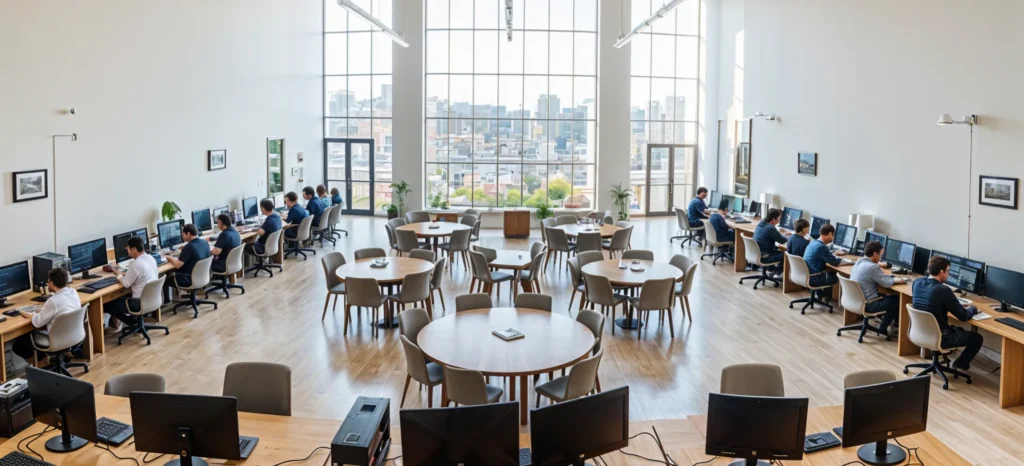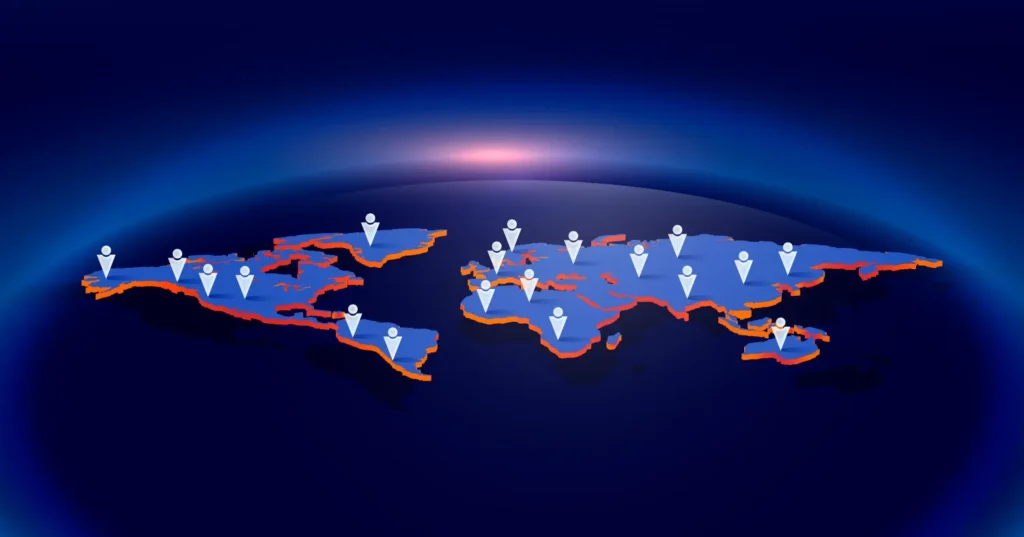Introduction to Computer Science in Pakistan
In today’s digital age, computer science is one of the most dynamic and essential fields, impacting nearly every aspect of modern life. As technology advances, so does the scope and importance of computer science worldwide—and Pakistan is no exception. Over the past decade, the demand for skilled computer scientists has grown significantly, driven by both technological innovations and the increased digital transformation of industries.

In Pakistan, the potential for computer science professionals to make an impact has never been higher. From AI advancements to software development, from cybersecurity to data analytics, the landscape of opportunities for computer science graduates and professionals is vast and diverse. This article explores the current state of computer science in Pakistan, the opportunities it presents, challenges faced by the sector, and how aspiring tech enthusiasts can leverage their skills in this ever-evolving field.
Key Points Overview
- Rising Demand for Computer Science Professionals: The need for tech talent is skyrocketing in Pakistan, as businesses and institutions digitize.
- Technology Trends and Opportunities: Key trends such as Artificial Intelligence (AI), machine learning, blockchain, and data science are becoming the backbone of the modern economy.
- Educational Pathways: Universities and institutions are offering specialized programs in computer science to meet the growing demand for skilled professionals.
- Entrepreneurship in Tech: Computer science is not only about jobs—it’s about creating jobs. Startups and tech innovations are thriving in Pakistan.
- Challenges and Gaps: While opportunities abound, there are certain gaps in skill development and infrastructure that need to be addressed.
Detailed Discussion
The Growing Demand for Computer Science Professionals
The global digital revolution has touched Pakistan’s shores. As businesses continue to adopt digital solutions, there has been an explosion in the demand for computer science professionals. Tech companies, banks, startups, and even government organizations need experts who can develop software, manage networks, create databases, and design user-friendly systems. In addition, the rise of e-commerce, social media, and mobile app development has contributed to the surge in demand for skilled professionals.
Local businesses are increasingly relying on computer science graduates to drive growth. Industries such as banking and finance, healthcare, retail, telecommunications, and logistics are embracing new technologies, such as automation, cloud computing, and big data analytics, which all fall under the umbrella of computer science. As a result, computer science graduates with the right skills have a wealth of opportunities available to them.
The Role of Emerging Technologies
- Artificial Intelligence (AI) and Machine Learning: AI is no longer a futuristic concept—it is here, and it’s transforming industries. AI and machine learning are being used in Pakistan to improve customer service, automate tasks, and enhance decision-making. From chatbots in customer service to predictive analytics in healthcare, the role of AI in Pakistan is increasing exponentially.
- Blockchain Technology: Blockchain is revolutionizing the way businesses handle transactions and manage data. With global interest in cryptocurrencies and decentralized systems, blockchain technology has found its niche in Pakistan as well. Startups and financial institutions are experimenting with blockchain to enhance security, reduce fraud, and streamline business processes.
- Data Science and Big Data: The rise of data-driven decision-making in industries such as healthcare, agriculture, and retail has fueled the demand for data scientists. With the growth of IoT devices and the proliferation of online data, the need for data analysts who can extract insights from massive datasets is rapidly increasing.
- Cybersecurity: As more organizations adopt digital systems, the risk of cyber threats also grows. The need for cybersecurity professionals has skyrocketed in Pakistan, where both public and private sectors face constant threats from hackers and cybercriminals. Protecting sensitive data, securing financial transactions, and ensuring the safety of national infrastructure have made cybersecurity a priority in the country.

Educational Pathways in Computer Science
To meet the increasing demand for tech professionals, Pakistani universities and institutions have started offering specialized computer science programs. These programs cover a wide range of topics including programming, software engineering, network security, databases, and data science.
Many universities also offer postgraduate degrees, research opportunities, and training programs in emerging fields such as AI, machine learning, and blockchain. This means that students can pursue careers as data scientists, AI researchers, or cybersecurity experts, among others.
However, while the number of institutions offering computer science courses is on the rise, there is still a need for more hands-on training and industry collaboration to ensure that graduates are ready to tackle real-world challenges.
Entrepreneurship and Startups in Pakistan
Pakistan’s startup ecosystem has seen significant growth, with technology being at the heart of this transformation. Computer science graduates are not just job seekers; they are job creators. The rise of tech startups in areas like FinTech, HealthTech, and EdTech is creating a wave of innovation in Pakistan.
Tech incubators, accelerators, and investment funds are making it easier for young entrepreneurs to turn their ideas into reality. Additionally, platforms such as Upwork and Fiverr allow local developers to earn on a global scale by offering freelance services in areas such as app development, website design, and software engineering.
Challenges in the Computer Science Sector
Despite the growing demand for computer science professionals, there are several challenges in Pakistan’s tech sector. These include:
- Skill Gaps: The rapid pace of technological advancement means that the demand for new skills often outpaces the education system’s ability to equip students. As a result, many graduates lack the hands-on skills necessary for success in the industry.
- Lack of Infrastructure: While Pakistan’s tech industry is growing, there are still significant gaps in infrastructure, such as access to high-speed internet and modern research facilities, especially in rural areas. These limitations can hinder innovation and growth.
- Gender Diversity: Like many other industries, the tech sector in Pakistan faces challenges related to gender diversity. Encouraging more women to pursue computer science and tech careers is essential to fostering a more inclusive and innovative environment.
- Global Competition: As global demand for tech talent rises, Pakistani professionals face stiff competition from developers in other countries. To remain competitive, computer science professionals need to constantly update their skills and stay abreast of the latest developments in the tech world.
Conclusion: The Future of Computer Science in Pakistan
The scope of computer science in Pakistan is vast and ever-expanding. With the right skills, training, and mindset, computer science professionals in Pakistan can be at the forefront of innovation in AI, blockchain, cybersecurity, and data science. As the global economy becomes increasingly reliant on technology, the role of computer science in Pakistan’s future is undeniably significant.
Pakistan has the potential to become a leader in tech innovation and entrepreneurship. By addressing current challenges such as skill gaps, infrastructure, and gender diversity, Pakistan can create a thriving environment for tech talent, fostering sustainable growth in its digital economy.

FAQs
Q1: What are the best career options in computer science in Pakistan?
A1: Some of the best career options in computer science in Pakistan include roles in software development, AI, machine learning, cybersecurity, data science, and blockchain technology. With the growing demand for tech talent, opportunities in both the public and private sectors are abundant.
Q2: Is it easy to start a tech startup in Pakistan?
A2: Starting a tech startup in Pakistan is increasingly becoming more accessible. The growth of tech incubators, accelerators, and online platforms such as Upwork provides local entrepreneurs with the resources and networks to launch their ideas.
Q3: What are the challenges faced by computer science professionals in Pakistan?
A3: Some challenges include skill gaps, lack of infrastructure, gender diversity issues, and fierce competition in the global job market. These challenges require systemic changes and a focus on enhancing education and resources in the tech sector.
Q4: How can I improve my skills as a computer science graduate in Pakistan?
A4: To improve your skills, focus on continuous learning through online courses, certifications, and internships. Participating in hackathons, joining professional networks, and gaining practical experience will help you stay competitive in the ever-changing tech landscape.
Q5: What is the future of AI in Pakistan?
A5: AI is poised for significant growth in Pakistan, with applications across various sectors such as healthcare, finance, and retail. As more businesses adopt AI solutions, the demand for AI professionals will continue to increase, offering exciting career prospects in this field.




